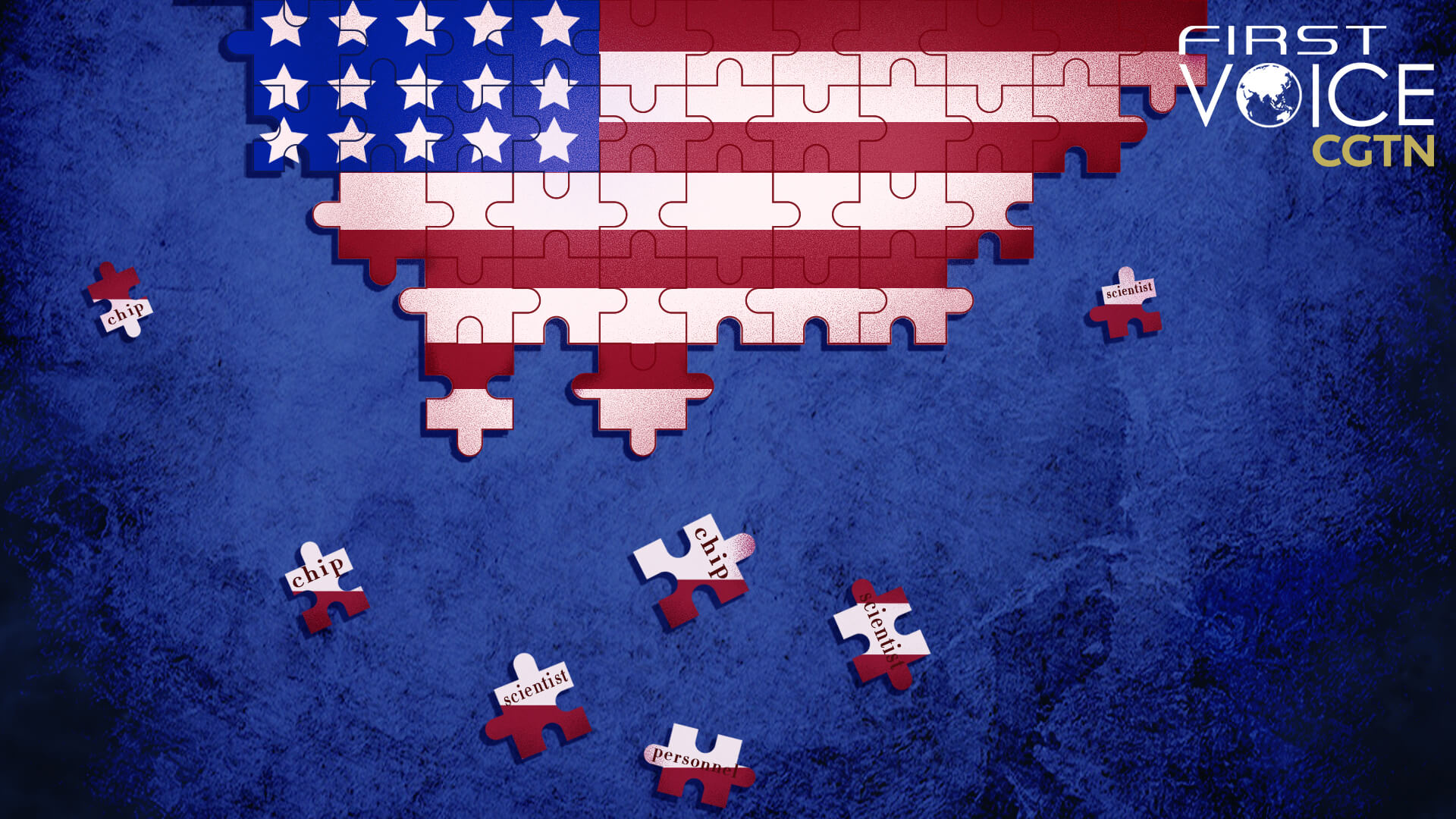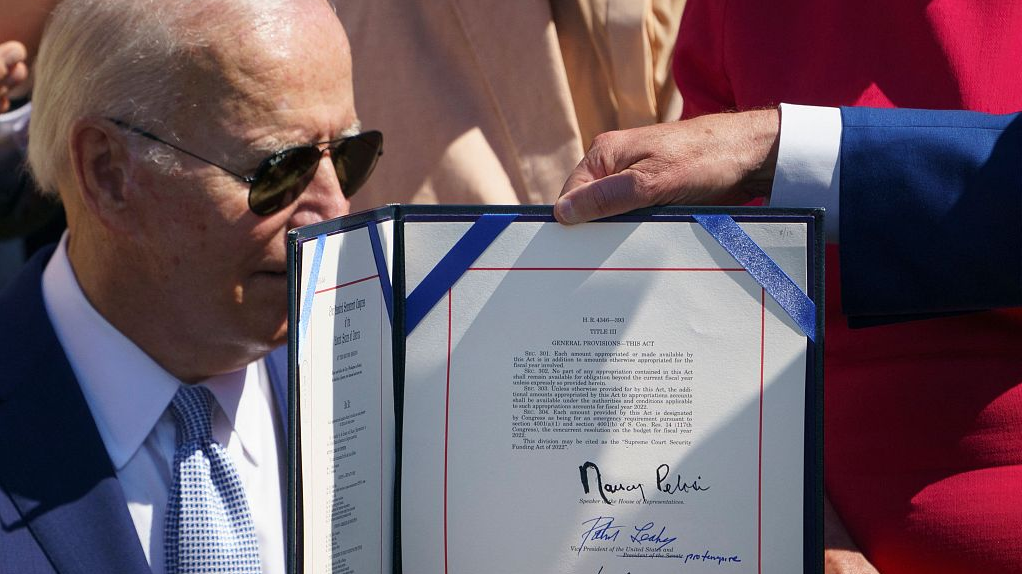
Technological protectionism is undermining U.S.'s own ability to compete. /CGTN
Technological protectionism is undermining U.S.'s own ability to compete. /CGTN
Editor's note: CGTN's First Voice provides instant commentary on breaking stories. The daily column clarifies emerging issues and better defines the news agenda, offering a Chinese perspective on the latest global events.
The United States is truly afraid of a technologically-advanced China. So much so that it couldn't even see it is isolating itself.
On October 3, the New York Times reported that the Biden administration is expected to announce new measures described as "some of the most significant steps taken… to cut off China's access to advanced semiconductor technology." These measures include a "broad expansion" of the foreign direct product rule, prohibiting any firm around the globe that uses American-made technologies from selling to entities in China that are targeted by the U.S., and attempts to control the sales of cutting-edge American-made tools to semiconductor industry in China.
What's interesting is that, as the NYT ran the story of the new restrictions, Barron's published a piece detailing the reasons of a scientific brain drain from the United States to China. According to the article, more than 1,400 Chinese scientists from corporations and top-tier U.S. academic institutions like Harvard and MIT have left the United States for China in 2021. As a "significant percentage" of science, technology, engineering and math (STEM) researchers are of Chinese descent, the article claims that the brain drain will be a major challenge for U.S. to compete with China.
The leave is credited to three reasons: Heightened geopolitical tensions between the U.S. and China that began during the Trump administration; a feeling of being the least included at work; and prejudice toward them since the COVID-19 outbreak.
In simpler terms: The United States is not helping itself at all.
This isn't a complete surprise, considering that the United States over two successive administrations have been plagued by the paranoia of what could happen if China surpasses the U.S. on the technological front. In mid-September, U.S. National Security Advisor Jake Sullivan said at a technology summit that technology export control is more than just a preventative tool, but a "new strategic asset in the U.S. and allied toolkit to impose costs on adversaries, and even over time degrade their battlefield capabilities." It had become very clear that technological protectionism is the doctrine. The $280 billion CHIPS and Science Act was designed specifically for this purpose.

H.R.4346, the CHIPS and Science Act of 2022, is displayed after it was signed by U.S. President Joe Biden on the South Lawn of the White House in Washington, D.C., U.S., August 9, 2022. /CFP
H.R.4346, the CHIPS and Science Act of 2022, is displayed after it was signed by U.S. President Joe Biden on the South Lawn of the White House in Washington, D.C., U.S., August 9, 2022. /CFP
Such a whole-of-the-government mobilization against China could only antagonize scientists in the United States even more and speed up these scientific brains – which are at the foundation of U.S.'s scientific developing - leaving its shores. Meanwhile, its effectiveness on containing China is dubious to say the least.
It is reported that, despite being put on the Entity List to limit its ability to reach advanced technology nodes of 10 nanometers or below in 2020, China's Semiconductor Manufacturing International Corporation had advanced to a quasi-7-nanometer process. According to the International Business Strategies Inc.'s data, China will approximately supply more than one-fourth of the chips it consumes in 2022, more than doubling the share in 2015. SEMI, the global industry association for electronic manufacturing and supply chain, projects that China will lead the world with 31 major semiconductor factories built by the end of 2024. Only 12 are expected to be built in the U.S. by that time.
Scientific advancement in the information era relies on open communication and exchanges. The United States, through its government policies and the unintended consequences of its political actions, have been setting up barriers that are more effective at walling itself off rather than achieving its original purpose of containing China. And a country isolated cannot thrive in a globalized and interdependent world.
(If you want to contribute and have specific expertise, please contact us at opinions@cgtn.com. Follow @thouse_opinions on Twitter to discover the latest commentaries in the CGTN Opinion Section.)